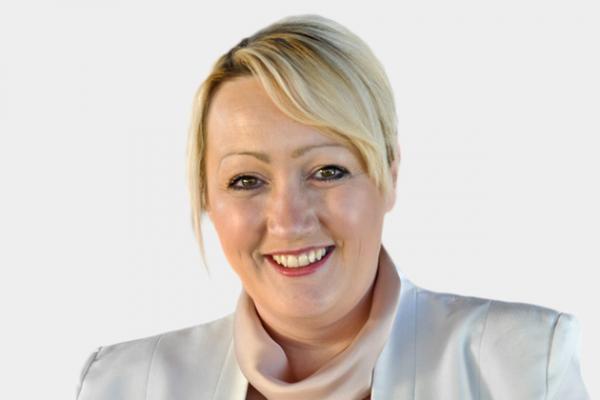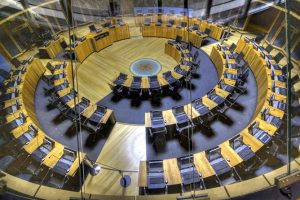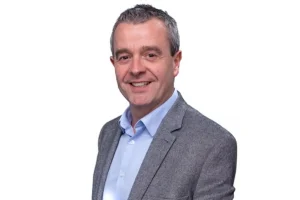FINANCE MINISTER Rebecca Evans unveiled the Welsh Government’s draft Budget with plans to invest more than £8bn for the Welsh NHS alongside ambitious projects to help combat climate change.
In the first Budget following the declaration of a climate emergency in Wales, there is significant new funding for low carbon transport and housing and support to restore Wales’ natural environment. This budget also protects major ongoing funding for renewable energy, the development of zero-carbon technologies and access to nature.
The 2020-21 draft Budget will see the Welsh NHS receive an inflation-busting increase of £342m next year, alongside an almost £200m boost for local government. Core funding for local authorities will grow to almost £4.5bn, boosting resources for schools, social care and other local services.
There will also be additional funding to tackle poverty, including extra support for disadvantaged pupils, and investment for town centre regeneration in a budget that delivers real-term increases for all Welsh Government departments.
This Budget also confirms that Welsh rates of income tax will be unchanged for next year, maintaining the pledge not to raise tax rates this Assembly term. It also focuses on longer-term, preventative measures to promote the wellbeing of future generations.
The UK government’s September 2019 spending round provided funding allocations for one year only. Following this announcement, like-for-like funding for Wales next year will be £300m lower compared with 2010-11.
Finance Minister Rebecca Evans said: “This draft Budget delivers on our promises to the people of Wales and invests for the future of our planet.
“Despite a decade of austerity, we have consistently prioritised our NHS. Our plans will confirm a £37bn investment in the Welsh NHS since 2016.
“As we take on the climate emergency, I am protecting our existing investment and delivering a new £140m package with support for low carbon transport and a National Forest for Wales.
“Funding increases for other vital public services, such as schools and local government have also been secured in this year’s Budget. Ministers have also worked across government to focus on long-term, preventative measures such as mental health investment in line with the Well-being of Future Generations Act.
“Even though our like for like funding remains below 2010 levels, this Budget strives for a greener, equal and prosperous Wales.”
Responding for the Conservatives, Darren Millar AM tore into the Draft Budget 2020-21.
Speaking in the Senedd on Tuesday (Jan 7), he said it was “…an opportunity the Finance Minister has missed…”, and full of policies that are “…tried, tested, and failed”.
From the M4 Relief Road, to Cardiff Airport, and from health and education to the economy, Mr Millar said that the Finance Minister had a golden opportunity to invest in the people’s priorities, drive a more dynamic economy, and build on the opportunities for Wales outside the European Union.
“But,” he began, “where there was the opportunity to be imaginative you’ve opted for the mundane. Where there was the opportunity to rise to the challenge and be ambitious for our economy, you sat back. Where there was the opportunity to be radical you’ve stuck to the tried, tested and failed.”
Mr Millar continued his passionate critique of the Draft Budget, calling the lack of investment in Welsh roads – including the M4 Relief Road rejected by the Welsh Labour Government following a £144-million investigation – “… one of the biggest barriers to growth and investment in South Wales” and calling for investment in the A55 and A40.
“But ironically, when we look at where the Welsh Government is investing in transport – it’s actually in the most polluting form – air travel.
“This year, we’ve seen a further £4.8 million for the state-owned Cardiff Airport, on top of a loan above £21m announced in October.”
Just last week, pre-tax losses at the airport trebled from the previous year to some £18.5m, far more than the modest £1m loss during the airport’s last full year in private ownership in 2012.
Specifically on the environment, Mr Millar – who represents Clywd West – said: “This was proclaimed as a ‘green’ budget, but the reality is that the Welsh Government’s response to its climate change emergency declaration has been slow, vague and uncosted. We need to see more investment in cleaner technology in line with the drive to phase out diesel and petrol vehicles.
“Many Welsh counties have the poorest network of electric vehicle charging stations in Britain. Why isn’t this budget doing more to invest in these? It’s a missed opportunity to invest in clean technology and encourage consumers to make greener choices.”
Speaking later, Mr Millar said: “There are elements of this Draft Budget I have welcomed, as have my Welsh Conservative colleagues, but overall its one failed opportunity after another from a failing Welsh Labour Government.”
Plaid Cymru shadow minister for the economy and finance Rhun ap Iorwerth AM said: “This is a budget that delivers only in its lack of ambition.
“Twenty years of Labour rule in Wales has shown us that more money for our NHS doesn’t in itself mean better services. What we need to see from this Labour government is a strategic plan on how this extra funding will be spent on preventative measures instead of the continued mismanagement of our NHS and health boards that are still in special measures. Meanwhile, local government is still not being given the level of funding it so desperately needs to deliver crucial front line public services.
“The £140m package for low carbon transport is not nearly ambitious enough and such a small package in the face of such a colossal global climate crisis shows that this Labour government isn’t taking the issue seriously enough.”
Rhun ap Iorwerth added: “To compound the problem of Labour mismanagement, the truth is, that the Welsh Government’s budget will be tied to the priorities of whatever government is sitting in Westminster, and we know that UK Governments – of whichever colour – care little about addressing Wales’ needs.”


















Add Comment